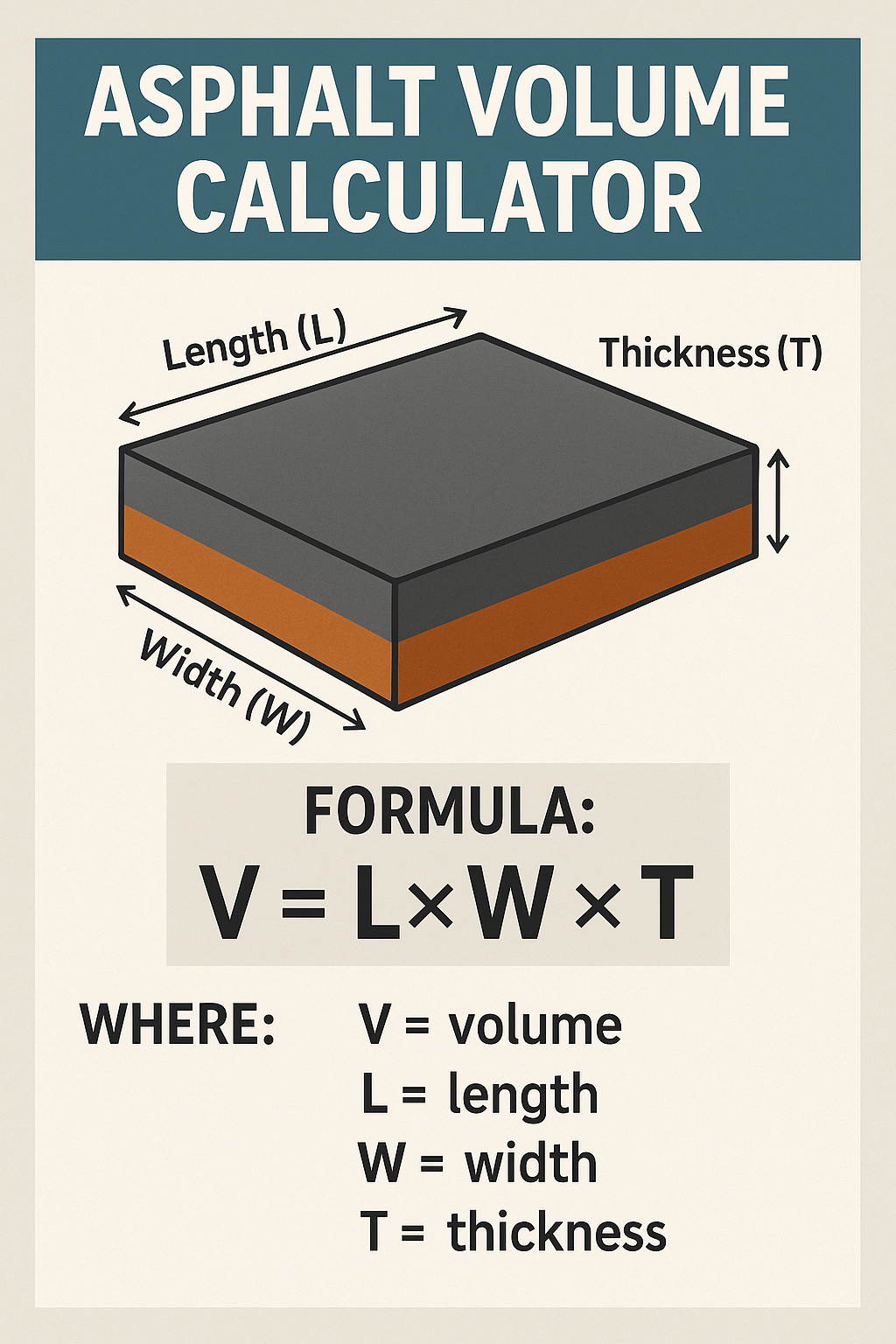Free Asphalt Volume Calculator Online
Calculating the volume of asphalt needed is a crucial step in roadwork, driveway, and pavement projects. A tool from Construction Calculators helps estimate the amount of material required based on the dimensions of the area to be paved. This tool assists contractors, civil engineers, and DIY homeowners in planning materials efficiently and minimizing waste. By entering the area length, width, and thickness, the calculator returns the volume of hot mix asphalt (HMA) in cubic feet, cubic yards, or tons depending on the user’s selection.
What Is an Asphalt Volume Calculator?
An asphalt volume calculator is a construction tool used to determine the amount of asphalt needed for a given project. This is particularly useful for paving roads, driveways, parking lots, and pathways. It uses basic geometry formulas to compute the asphalt volume based on the project’s dimensions. Users simply input the length, width, and desired depth of the asphalt layer. Some calculators also allow material density input to convert volume to tons, aiding in order accuracy and transportation planning.

Why Use an Asphalt Volume Calculator?
Using an asphalt volume calculator prevents material shortage or excess, ensuring that the right amount of asphalt is delivered to the job site. It improves budgeting and project management by estimating costs tied to material and delivery. Overestimating leads to wasted money and excess storage, while underestimating causes delays and added trips. Asphalt is a costly material, and proper planning ensures it’s used efficiently.
Inputs Required for Asphalt Calculation
To use an asphalt volume calculator effectively, you need the following inputs:
- Length of the area (in feet or meters)
- Width of the area (in feet or meters)
- Thickness or depth of the asphalt layer (in inches or centimeters)
- Density of the asphalt mix (optional for weight calculation)
Asphalt Volume Formula
The standard formula to calculate asphalt volume is:
To convert to cubic yards:
To convert to tons:
Example Calculation
Let’s say you have a driveway that is 100 feet long, 12 feet wide, and 3 inches deep.
- Convert 3 inches to feet: ft
- Calculate volume in cubic feet:
- Convert to cubic yards:
- Assuming asphalt density is 2.5 tons per cubic yard:
Factors That Affect Asphalt Volume
Several factors influence the actual asphalt needed:
- Compaction factor: Asphalt is compacted after being laid, requiring more volume initially.
- Subgrade preparation: Uneven or soft subgrades might need thicker asphalt.
- Weather conditions: Cold weather affects asphalt compaction and workability.
- Material waste allowance: Always add 5-10% extra to account for loss.
Benefits of Accurate Asphalt Volume Estimation
Accurate volume estimation results in:
- Cost savings on material
- On-time project completion
- Better logistics and delivery planning
- Reduced waste and environmental impact
- Improved customer satisfaction
Common Uses of Asphalt Volume Calculator
- Residential driveways and walkways
- Commercial parking lots
- Highway and road maintenance
- School and industrial complexes
- Pavement overlays and resurfacing
Conclusion
An asphalt volume calculator is a simple but powerful tool for anyone involved in paving projects. By entering just a few measurements, users can ensure precise planning, reduce costs, and avoid project delays. Whether you’re working on a residential driveway or a municipal road, having the right volume of asphalt makes all the difference. Always include a buffer, consider compaction, and consult your material supplier for specific density values. Tools like this, found on the Concrete Calculators platform—along with the Concrete Block Fill Calculator and Slab Thickness Calculator—make your asphalt paving projects more predictable, efficient, and professional.
